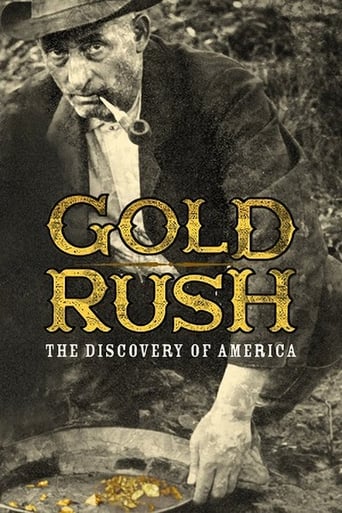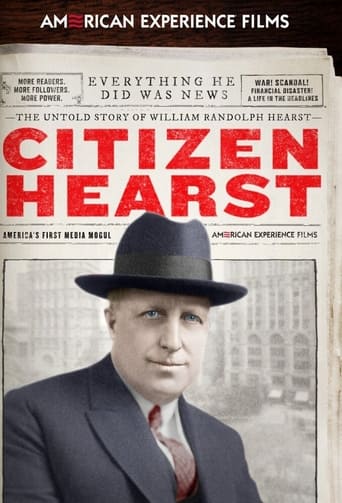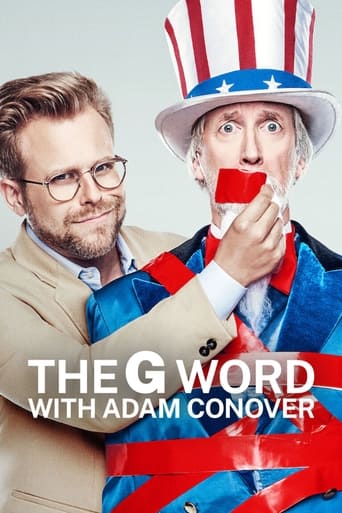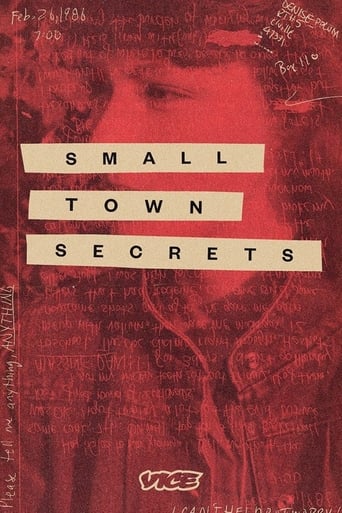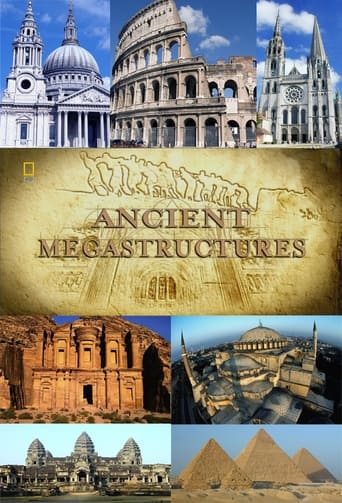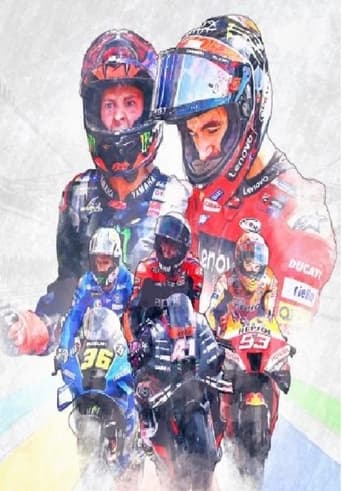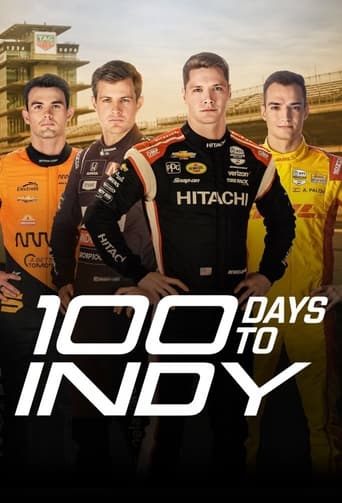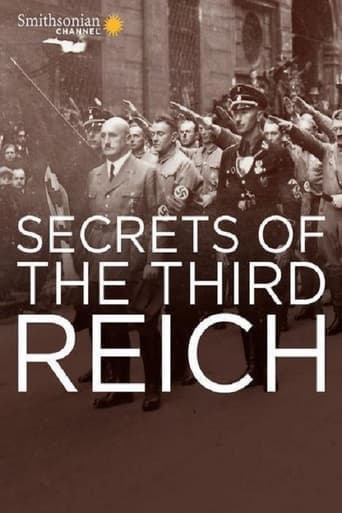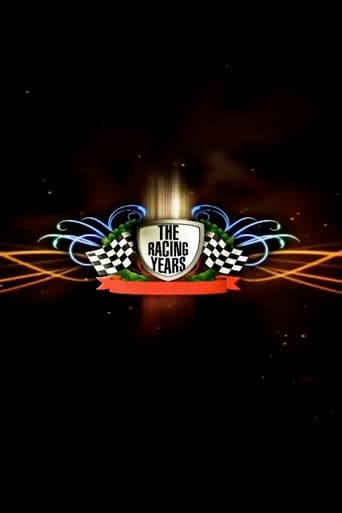
Rating:
0/10 by 0 users
The Racing Years (2014)
The Racing Years is the first ever race-by-race, week-by-week, month-by-month summary of all the major international motor sport events & legends. Travel with us from Continent to Continent as we revisit the excitement, glory, crashes, close-calls, heartaches and milestones from early days of motor racing to now. Each half hour episode covers one Racing Year of major motoring milestones.
Writing:
Release Date:
Sat, May 31, 2014
Country:
Language:
Runtime:
Country:
Language:
Runtime:
Tim Dehn
Narrator
Season 1:

1950: the world's first drivers' championship with the world's most famous drivers. Featuring cars such as Porsche Ferrari Maserati Alfa Romeo and Jaguar the main races include: The Grand Prix Belgium Grand Prix Silverstone Indy 500 and German Grand Prix.

Beginning in wintry January with the Monte Carlo Rally it's a Grand Prix showdown between Alfa Romeo—with their aging Alfetta 159s driven by the defending World Champion—and the Ferrari 375s.
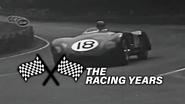
1952: a crisis in Grand Prix Racing. Alfa Romeo retires while at the top leaving Ferrari and BRM as Formula 1 contenders. But race organizers decide that Formula Two is more entertaining and should become the World Championship Formula.
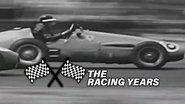
In The Grand Prix the rivalry continues between two Italian teams: Ferrari and Maserati. 1953 is a classic year for sports car racing with the Mille Miglia and Le Mans joining a new Sports Car World Championship.

1954 is a pivotal racing year with a new Formula 1 using 2.5 liter engines. Defending world champion Alberto Ascari signs for Lancia Mercedes prepares for their Grand Prix return Maserati debuts the 250F and Ferrari introduces four new models.
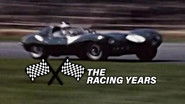
In 1955 Juan Manuel Fangio is back to defend his Grand Prix World Championship for Mercedes with rising British driver Stirling Moss alongside in the W196. The Trident chooses Frenchman Jean Behra is the new team leader and Ferrari has Nino Farina and Maurice Trintignant under contract.
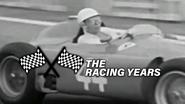
In 1956 Mercedes withdraws from motorsport. World champion Juan Manuel Fangio decides not to retire and determines his future is with Ferrari.
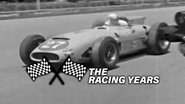
In 1957 defending world champion Fangio returns to Maserati and continues his career with the Trident replacing Stirling Moss. Fangio arrives at the Medina Circuit to try out the latest version of the 250F.

1958 was destined to be a battle between British drivers Mike Hawthorn Stirling Moss Peter Collins and Tony Brooks. Also racing: Ferrari's Dino 246 and Vanwall—with BRM and Cooper nipping at their heels—and Lotus a Formula One newcomer.
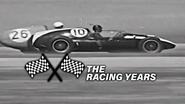
1959 is a dramatic year for racing with the retirement of both the Constructor's Cup winner and the 1958 World Champion. Maserati is gone Ferrari is the last of the old guard and Cooper BRM and Lotus are emerging.

The 1960s dawns with the Formula 1 scene centered on Britain. Defending World Champion Jack Brabham and Stirling Moss continue their duel as Lotus and Cooper become front-runners. In sports cars Ferrari is challenged by Porsche especially in the Targa Florio.
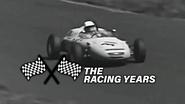
It's 1961. There's a new 1.5 liter formula in Grand Prix racing and Ferrari is well-prepared with the distinctive Sharknose 156. In sports cars it's Italy versus Germany; Ferrari versus Porsche.
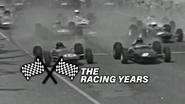
In 1962 British teams BRM and Lotus and British drivers Graham Hill and Jim Clark are at the forefront. In sports cars Ferrari faces less opposition than before with Porsche concentrating on Formula.

In 1963 the main contenders are Graham Hill in the BRM and Jim Clark in the Lotus. Le Mans continues to be Ferrari's domain but Ford takes an interest in racing. The Monte Carlo Rally opens the year.

1964 was the high point of swinging 60's Britain with British teams taking on the lone Italian Ferrari. Ford challenges Ferrari's sports car supremacy and the motorsport season opens with the annual Racing Car Show at Olympia in London.
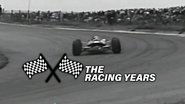
1965: the final year of the 1.5 liter formula. Jim Clark and Lotus have an ambitious grand prix program. Ford pressures Ferrari—determined to win at Le Mans. Jim Clark leads the World Championship in South Africa. Only 35 of the 238 Monte Carlo crews reach the finish line.

In 1966 there is a return to power in Grand Prix racing. Jack Brabham is best prepared to dominate the season. More British drivers compete at the Indianapolis 500. Ford makes a third attempt at Le Mans and all of the big names compete in Formula.

In 1967 Formula One is heating up. Will Jack Brabham retain his championship or will Jim Clark's Lotus win? The Formula 1 season opens with the South African Grand Prix. Team Lotus recruits Graham Hill to join Jim Clark.

1968 is a pivotal year with the tragic loss of Jim Clark and three Grand Prix drivers. Graham Hill steps up to Jackie Stewart's challenge in the new Matra. Defending World Champion Denny Hulme is now with McLaren. The Le Mans race is Ford GT40 vs. Porsche 908.
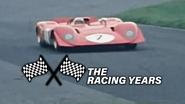
1969: end of the Swinging 60s. Jackie Stewart is unstoppable in his Cosworth-powered Matra. Challengers were Jochen Rindt Denny Hulme Bruce McLaren Graham Hill and new Brabham driver Jacky Ickx. Ickx in the new GT40 has the closest-ever finish at Le Mans against Hans Herrmann's Porsche 908.

It's 1970 and the new decade brings increasing interest in commercial sponsorship of Formula 1. European and South American drivers take on "big names" Stewart Ickx and Brabham. Jochen Rindt makes his breakthrough with Lotus and Porsche dominates sports car racing.

1971 brings the loss of Jochen Rindt and retirement of Jack Brabham leaving Jackie Stewart and his dark blue Tyrrell on the rise. New rivals emerge most notably Brazil's Emerson Fittipaldi and Sweden's Ronnie Peterson. Porsche Matra and Ferrari battle at Le Mans.
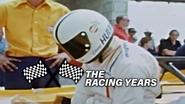
In 1972 the rivalry between Lotus' Emerson Fittipaldi Tyrrell's Jackie Stewart Ferrari's Jackie Ickx and Clay Regazzoni is intense. The Formula 1 Championship takes in 12 rounds L'amour sees a famous home win and Can-Am has massively powerful sports cars rumbling stateside.

1973 is Jackie Stewart's final season and he's determined to go out on a high note. Formula 1 grows with 15 races and new teams Shadow and Ensign replacing Matra. Matra concentrates on back-to-back Le Mans wins. The season opens with the Argentinean Grand Prix.

1974 brings many changes in Formula 1. Emerson Fittipaldi leaves Lotus for McLaren and Niki Lauda and Clay Regazzoni are at Ferrari. Jackie Stewart and Francois Cevert are gone while Frank Williams continues his battle to stay in the sport. Matra goes for a "hat trick" of victories at Le Mans.

In 1975 Niki Lauda and Ferrari's new 312T prove the perfect combination. There is plenty of drama at Le Mans as the race unfolds between Mirages and Ligiers. At the Argentinian Grand Prix reigning world champion Emerson Fittipaldi is joined at MacLaren by Germany's Jochen Mass.




